
SEO is getting more challenging day after day. So, what can you do to outrank your organic competition more easily? One of the best ways to do that is by targeting niche keywords.
Niche keywords generally have lower competition compared to broader, more generic terms. This means that it's often easier to rank higher in search engine results for niche keywords, increasing your visibility and chances of attracting the right audience.
Focusing on niche keywords allows you to position yourself as an authority in your industry. Over time, consistently producing content around niche topics builds trust and credibility with your audience.
This article shares the top strategies to find niche keywords and maximize the impact of your online presence.
What are Niche Keywords?
Niche keywords are specific words or phrases focusing on a particular topic or area of interest.
Imagine you're looking for information about a specific type of video game or a unique hobby like painting miniature models.
The words or phrases you use to search, like "best strategy games for PC" and "miniature painting tips", are examples of niche keywords.

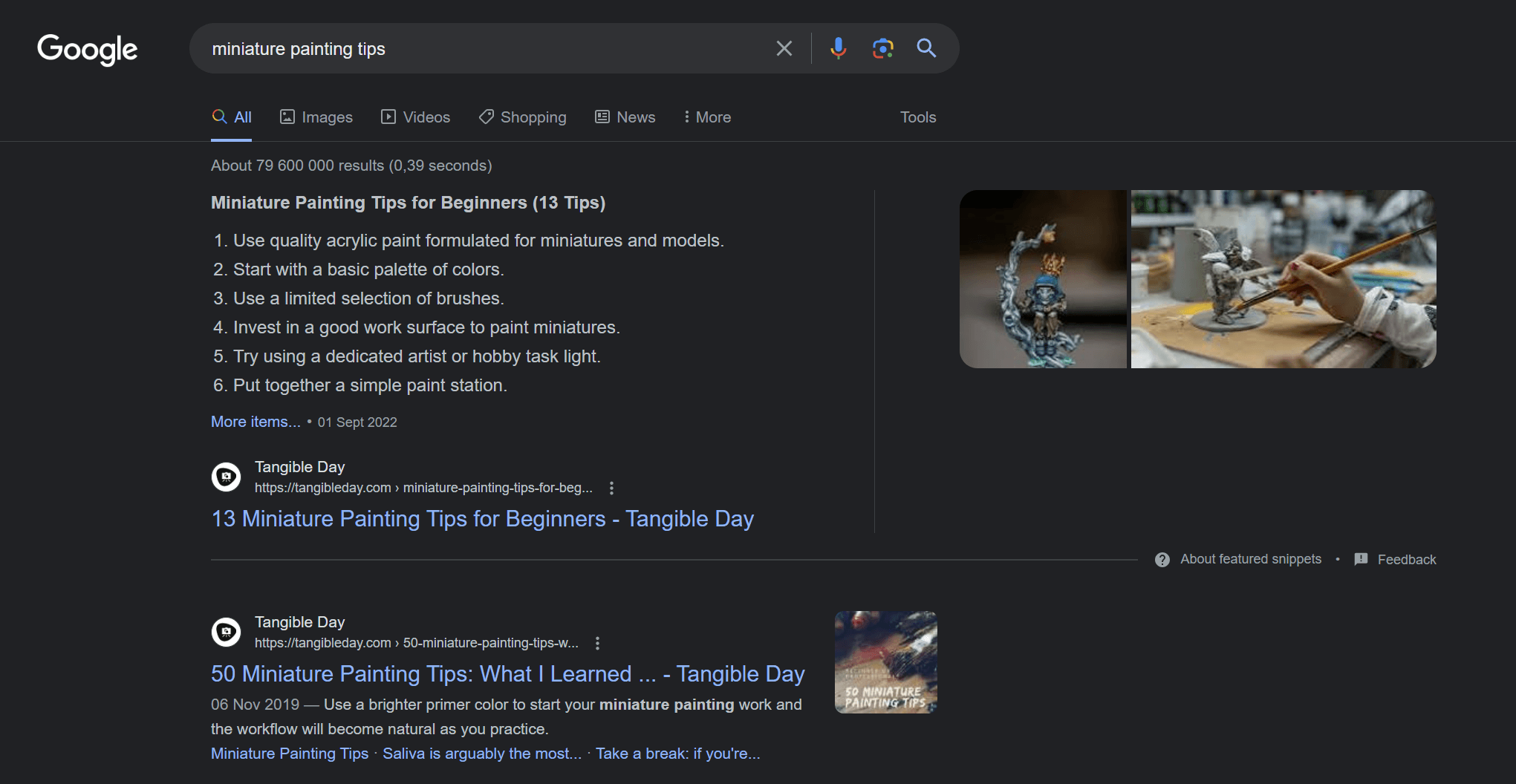
Because niche keywords are more specific and targeted, they help users find exactly what they're interested in on the internet.
Niche Keywords vs Regular Keywords
Niche keywords and regular keywords differ primarily in terms of specificity, target audience, competition, and conversion rates. Niche keywords are highly specific, focusing on a narrow topic or industry and attracting a more specialized audience. In contrast, regular keywords are broader and cover a wider range of topics, appealing to a more diverse audience.
The table below highlights the primary differences between niche keywords and regular keywords:
| Regular Keywords | Niche Keywords |
| Specific and tailored to a specific subject or sector. | Broad and general, often with a wider scope. |
| Lower search volume. | Higher search volume. |
| Lower competition, as they are more specific. | Higher competition due to broader relevance. |
| More aligned with specific user intent due to precision. | May have varied user intent due to broad scope. |
| Higher conversion potential, as users searching for niche keywords are often closer to the buying stage. | Lower conversion potential, as users may be in the early stages of the buying cycle. |
| Requires more specific and tailored content. | Allows for a broader range of content. |
| Often include long-tail keywords, adding specificity. | Can include long-tail keywords but mostly comprises shorter, more generic terms. |
| Targets a more specialized audience interested in a particular niche. | Appeals to a broader audience with diverse interests. |
| Requires a focused SEO strategy to rank for specific terms. | Demands a broader SEO strategy to cover a range of topics. |
| Establishes content authority in a specific niche. | Establishes authority across a broader range of topics. |
The choice between niche vs. regular keywords depends on a website or campaign's specific goals and targeting strategy.
Examples of Niche Keywords
Another example of a niche keyword is "vegan gluten-free dessert recipes".
This keyword is highly specific, targeting individuals with a particular dietary preference (vegan) and a specific dietary restriction (gluten-free).
It caters to a niche audience interested in finding dessert recipes that align with both vegan and gluten-free lifestyles. This level of specificity distinguishes it from a broader keyword like "dessert recipes," making it more targeted and relevant to a specific group of users.
Here are some more examples of niche keywords for your inspiration:
| Category | Niche Keyword Examples |
| Fitness | High-intensity interval training (HIIT) |
| Technology | Best budget gaming laptops 2023 |
| Parenting | Positive discipline techniques |
| Cooking | Vegan instant pot recipes |
| Photography | Macro photography tips for beginners |
| Travel | Solo backpacking destinations |
| Pet care | Training tips for small dogs |
| Sustainable living | Zero waste lifestyle guide |
| Fashion | Ethical and sustainable fashion trends |
Why are Niche Keywords Important?
Since niche keywords focus on a narrow industry vertical, they are easier to rank for and generally generate high conversions. Here are the top advantages of targeting niche keywords in your SEO strategy:
Targeted Traffic
Niche keywords are crucial in SEO because they attract specific, targeted traffic to a website.
For instance, if a website specializes in smart home devices, ranking for the niche keyword "smart home automation gadgets" ensures that the site reaches users interested in precisely that, increasing the likelihood of conversions.
Reduced Competition
SEO can get pretty competitive, especially when you're dealing with shorter, high search volume keywords.
But if you use more specific words, like niche keywords, things get a bit easier. Niche keyphrases usually have a low search volume and don't have as many websites competing for them.
So, if your website focuses on these niche keywords, it's more likely to show up higher in search results. That means more people can see it, making your website more noticeable online.
Higher Conversion Rates
Visitors arriving from niche keywords are more likely to convert because their search intent is crystal clear.
For example, if someone searching for "DIY home fitness routines for beginners" stumbles upon a website providing precisely that content, the likelihood of them getting engaged and converting is much higher than with a general keyword such as "fitness routines".
The specificity of niche keywords ensures that the website aligns perfectly with what users are actively seeking, resulting in meaningful interactions and increasing the chances of successful conversions.
Long-Tail Keyword Opportunities
Many niche keywords are long-tail keywords, which are longer and more specific phrases.
Long-tail keywords often have lower search volume individually, but collectively, they can contribute significantly to your overall organic traffic.
Content Production Optimization
Incorporating niche keywords into your content strategy allows you to plan and organize your content production more effectively. This helps you cover a wide range of related topics, creating a comprehensive resource for your target audience.
Establishing Authority
When users find relevant content that align with their specific needs, they are more likely to engage with the website. This engagement, in the form of longer time spent on the site, lower bounce rates, and social sharing, signals to search engines that the content is valuable and trustworthy.
Moreover, websites that focus on niche topics are more likely to attract backlinks from other authoritative sources in the same niche. Backlinks are crucial for SEO and contribute significantly to a website's authority.
Adaptability to Voice Search
With the rise of voice search, people often use more conversational and specific queries. Optimizing for niche keywords ensures that a website is well-suited to rank for voice searches.
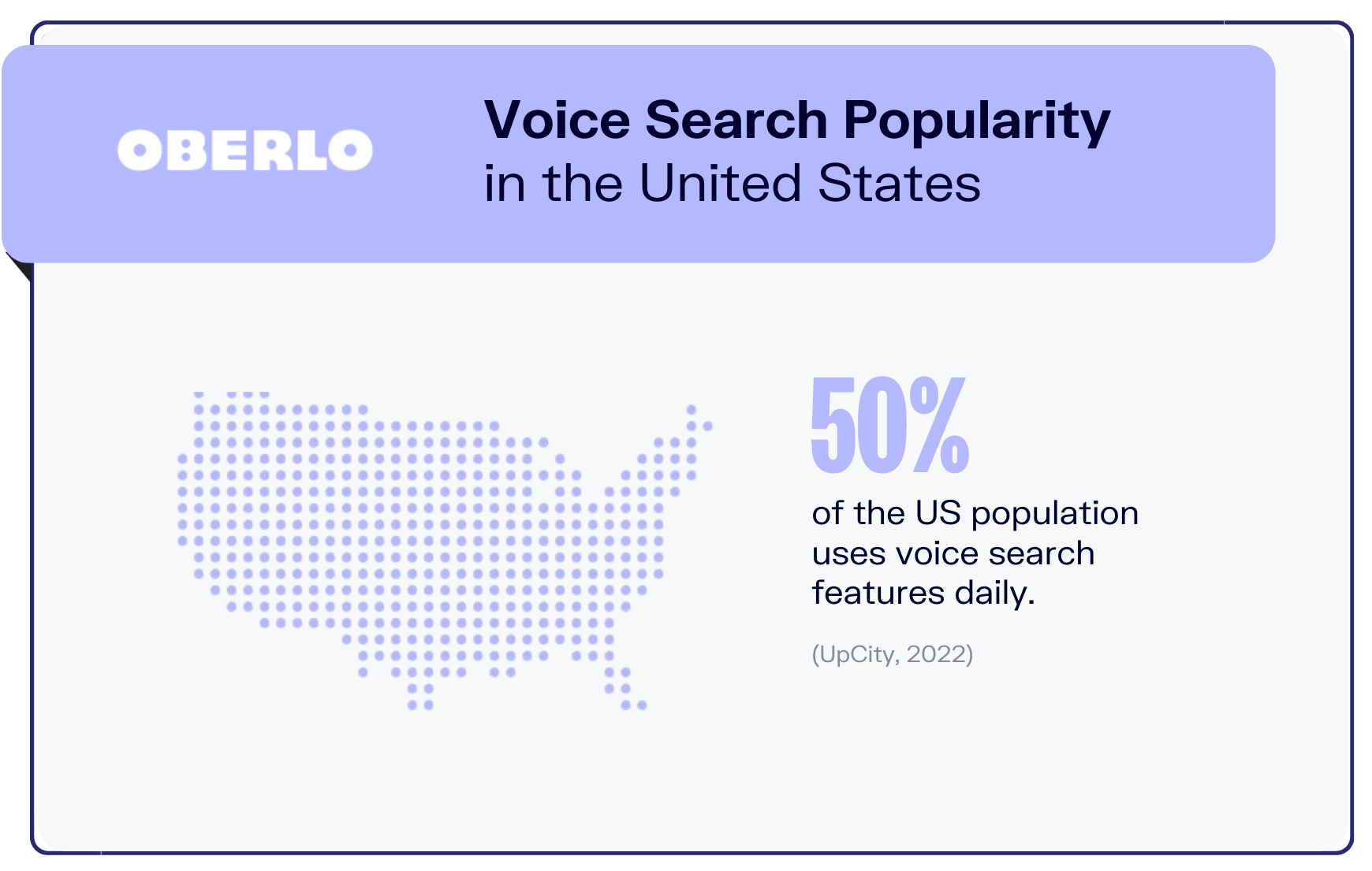
Image source: Oberlo
Crafting content that is optimized for niche keywords and that answers common questions within the niche increases the likelihood of a website being featured in position one, making it a prime candidate for voice search results.
How to Find Niche Keywords
Finding niche keywords involves a combination of understanding your target audience, conducting research, and using tools to identify specific, less competitive keywords.
Here's a step-by-step guide to finding niche keywords:
Have a Clear Understanding of Your Niche
Having a clear understanding of your niche is fundamental for business success.
This involves precisely defining the market you operate in, identifying the characteristics of your target audience, and recognizing your unique value proposition.
By thoroughly researching competitors, understanding customer pain points, and staying informed about industry trends, you position your business to respond effectively to the needs of your audience.
Use a Keyword Research Tool to Find Initial Keywords

Begin by identifying the core topics within your niche using an SEO keyword research tool. For instance, if your niche is "organic skincare," core keywords may include:
- Natural skincare
- Vegan skincare
- Chemical-free skincare
- Sustainable skincare
- Non-toxic skincare
- Plant-based skincare
- Ethical skincare
- Herbal skincare
- Paraben-free skincare
- Organic beauty products
Most keyword research tools will generate a list of keyword suggestions based on your input. Review these suggestions to identify potential keywords.
Pay attention to search volume, competition, and relevance. You should pick keywords having higher search volume but lower competition.
For instance, the SEOptimer keyword research tool helps you show the competition level for every keyword to better plan your niche keyword SEO strategy.
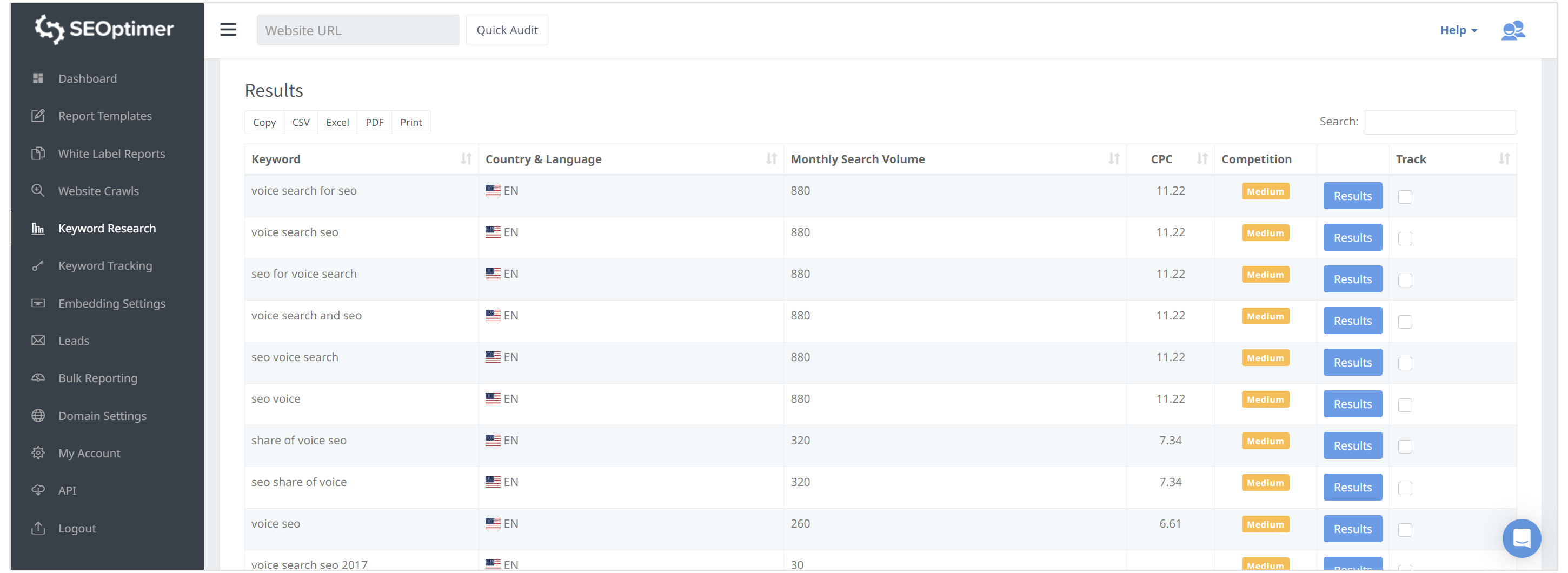
Also, some tools like Google Trends provide insights into keyword trends over time.
Check for seasonality or fluctuations in search volume, as this information can help you plan your content strategy.
Simply enter your keyword, and the tool will display a graph depicting the interest over time for the keyword. A value of 100 is the peak popularity for the term. A value of 50 means that the term is half as popular. A score of 0 means there was not enough data for this term.
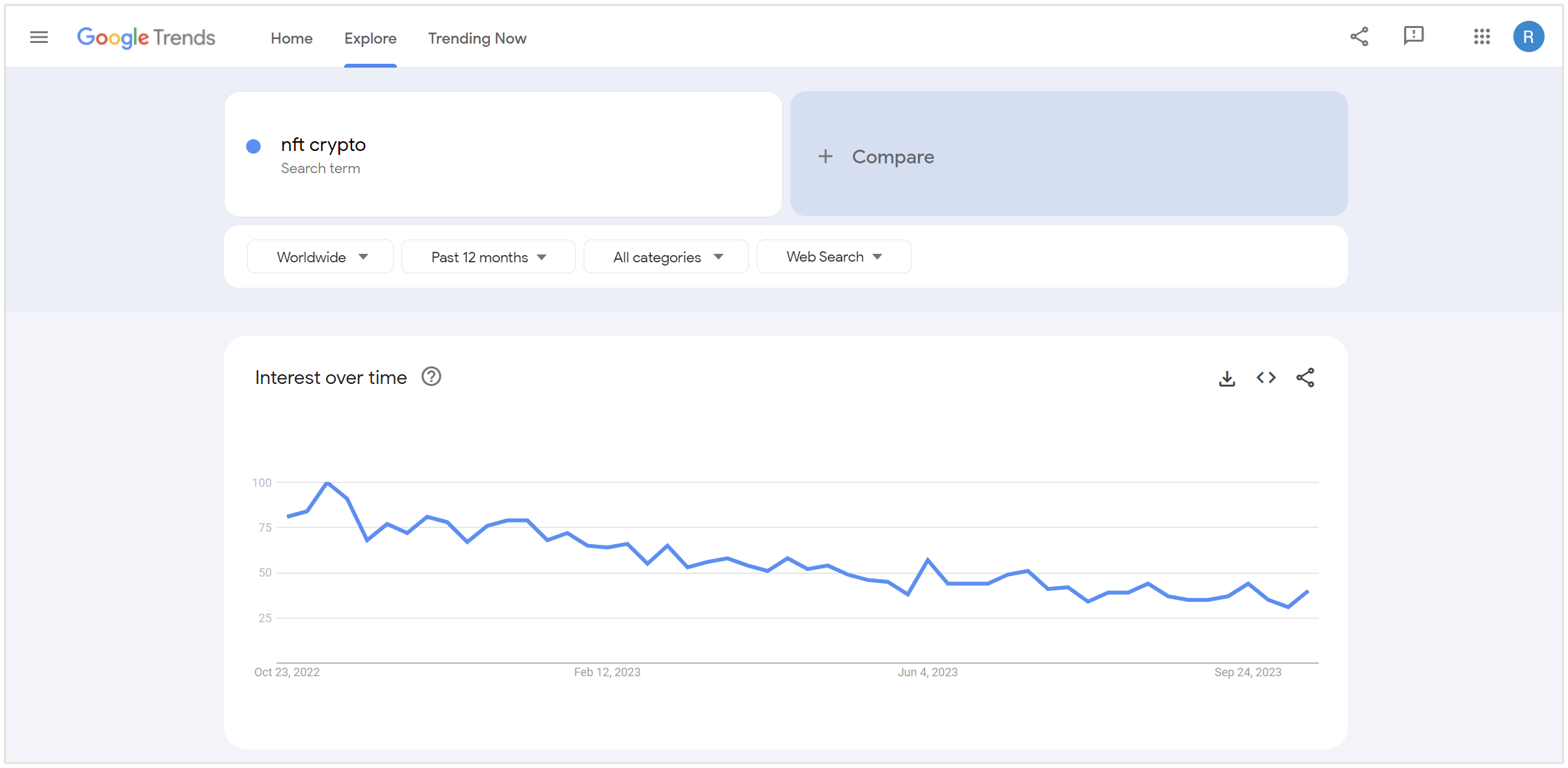
Additionally, there are keyword research tools like SEOptimer that allow you to analyze competitor keywords.
Enter the URLs of your competitors' websites to discover the keywords they are ranking for. This can provide inspiration for your own keyword strategy.
Then compile a list of promising keywords based on your research and organize them into categories or themes that align with your content or business goals.
Trim Down the List of Keywords You Found
Trimming down the list of keywords involves a strategic evaluation process. Begin by ensuring relevance and eliminating keywords that don't align with your content or business objectives.
Prioritize keywords with a balanced search volume and reasonable competition, aiming for a realistic chance of ranking well.
It's important that you put an emphasis on long-tail keywords for specificity and user intent.
Opt for user-friendly language and regularly review and refine your keyword list to adapt to evolving trends and user behaviors. This focused approach ensures that your selected keywords align with your goals and resonate effectively with your target audience.
Analyze SERPs to Determine Ranking Difficulty
After compiling your list of keywords, the next step is to analyze Search Engine Results Pages (SERPs) to assess the ranking difficulty for each keyword.
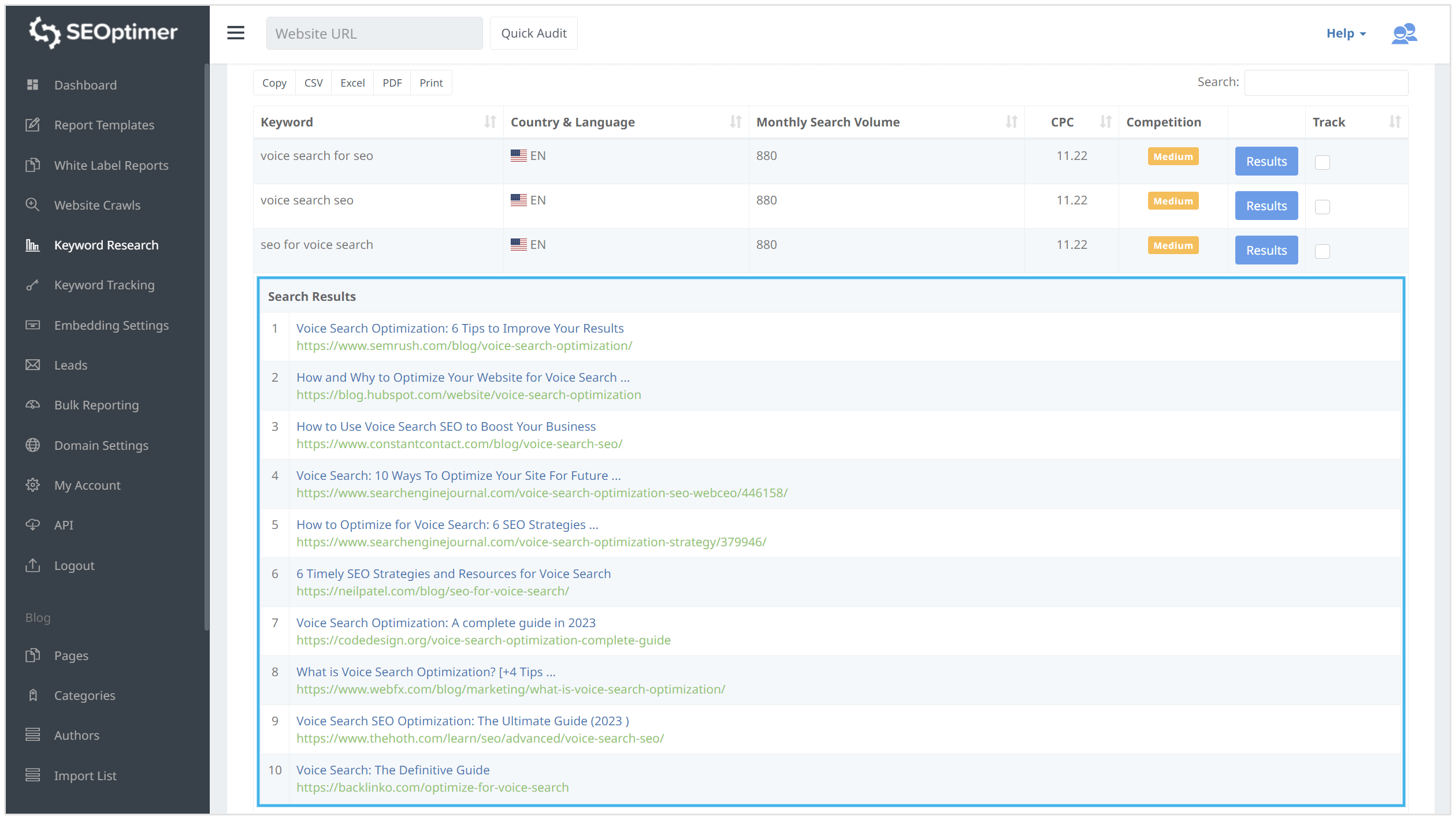
Look for factors such as domain authority, page authority, backlink profile, content quality, and competition level.
This analysis will help you understand the competition landscape and guide your strategy for targeting specific keywords.
Tools to Find Niche Keywords
SEOptimer Keyword Tool
SEOptimer Keyword Tool is a comprehensive SEO analysis tool that provides you a competitive advantage by revealing the organic search volume of over billions of tracked keywords.
To use the SEOptimer Keyword Tool, login to your account and enter your seed keyword(s).
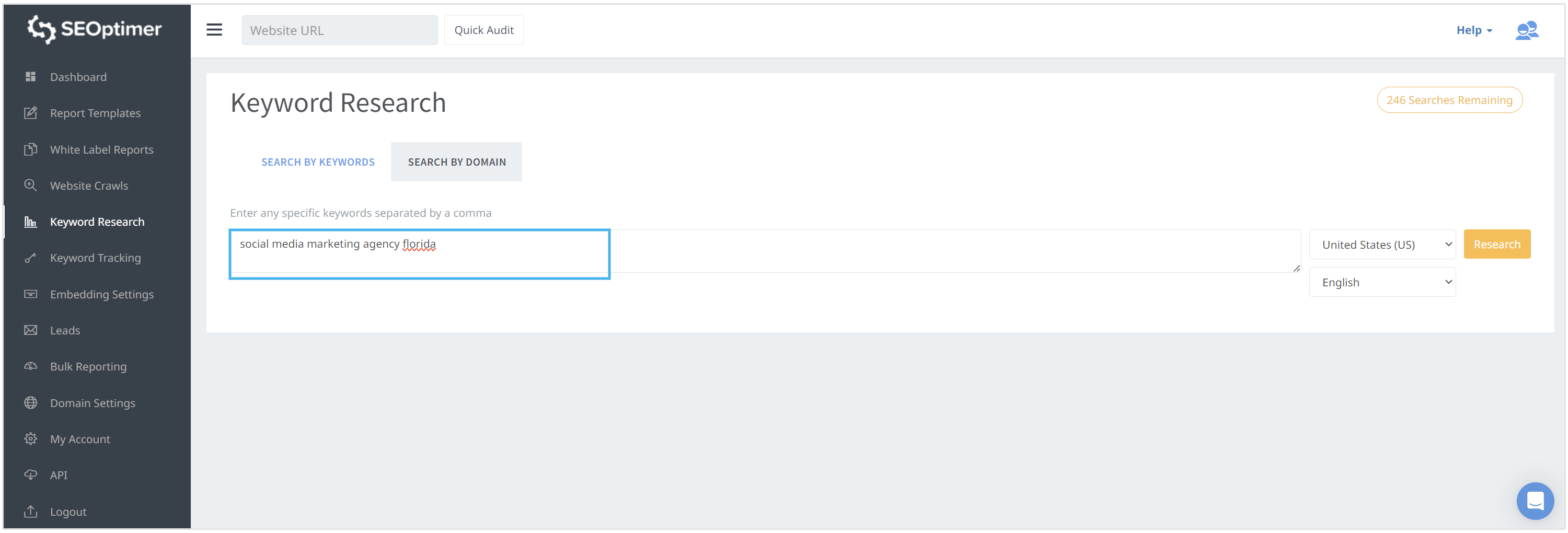
The results show monthly search volume, CPC (Cost Per Click), and competition level (Low, Medium, High) for each keyword.
Click on the "Results" button to view the Search Engine Results Page (SERP) for each keyword in your selected country.
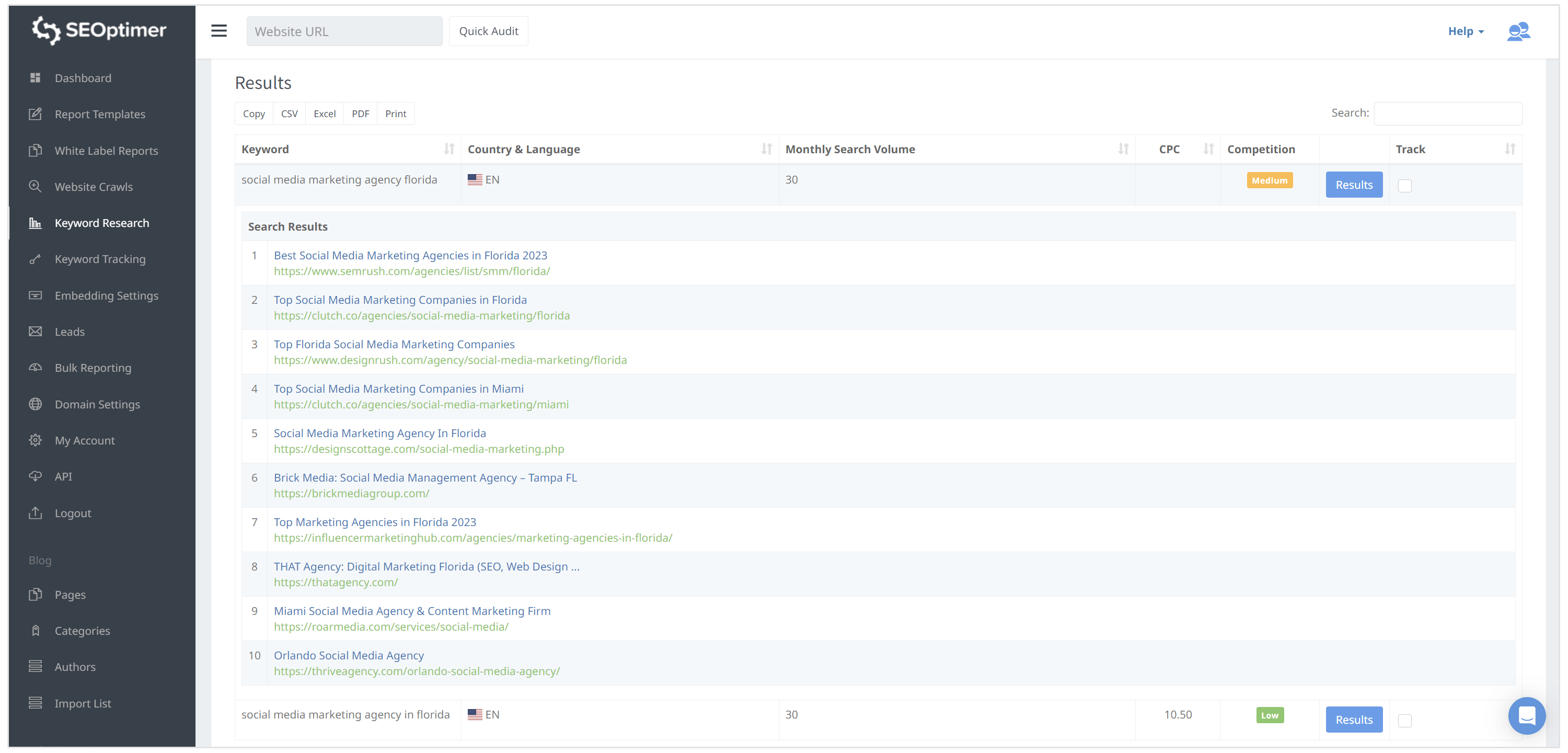
You can easily export data to CSV, Excel, or PDF using the buttons at the top of the table. You can also enter your competitor’s domain to track keywords associated with a specific domain.
Google Keyword Planner
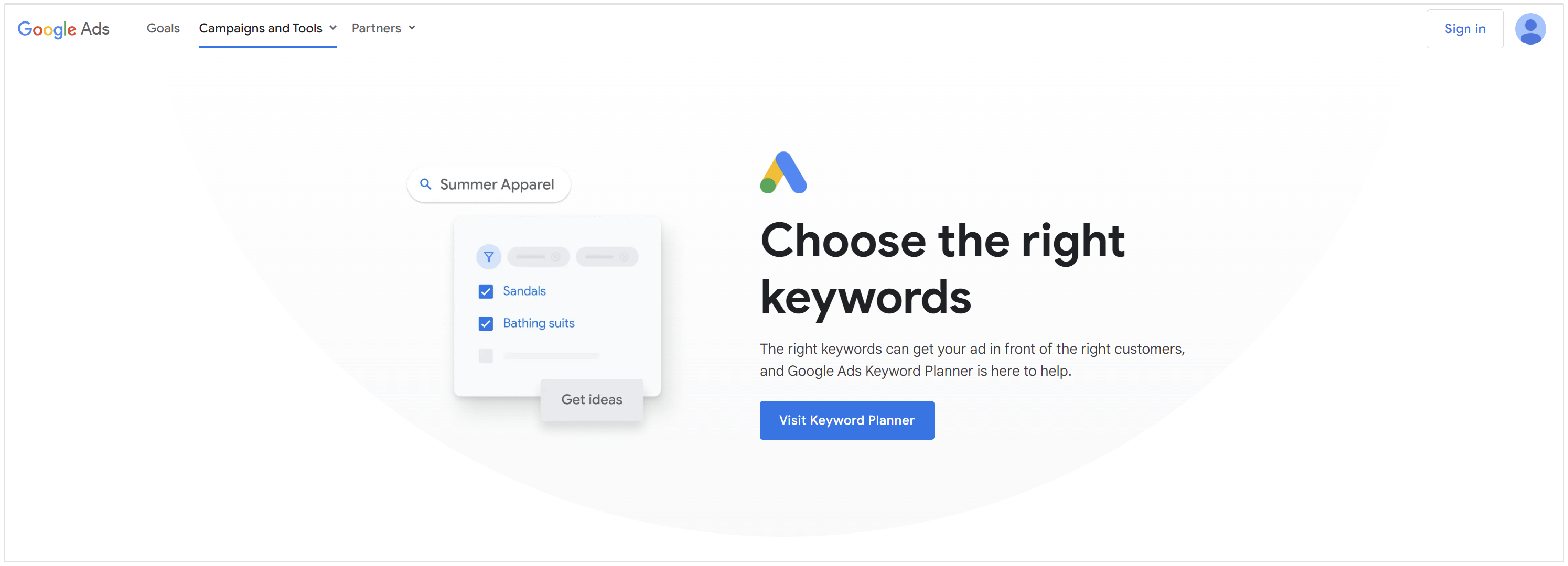
Google Keyword Planner is a powerful tool directly integrated with Google Ads. It primarily assists in discovering keywords for advertising campaigns, but its insights are valuable for organic search as well.
To use Google Keyword Planner, login with your Google Ads or Gmail account. Now click on "Discover new keywords" as shown in the screenshot below:
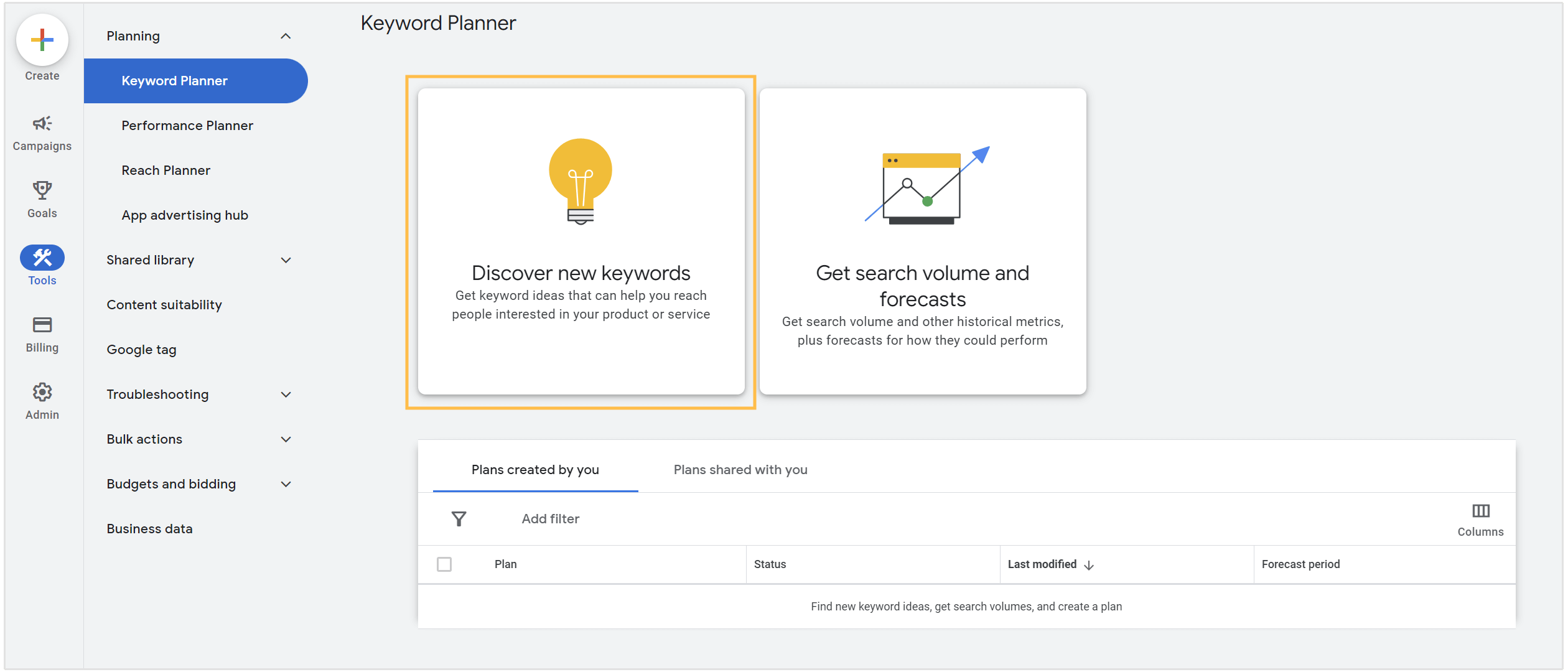
For example, if I wish to find keywords related to coffee mugs, I will enter the primary keyword, ‘personalised coffee mugs,' in the search bar and click on "Get results".
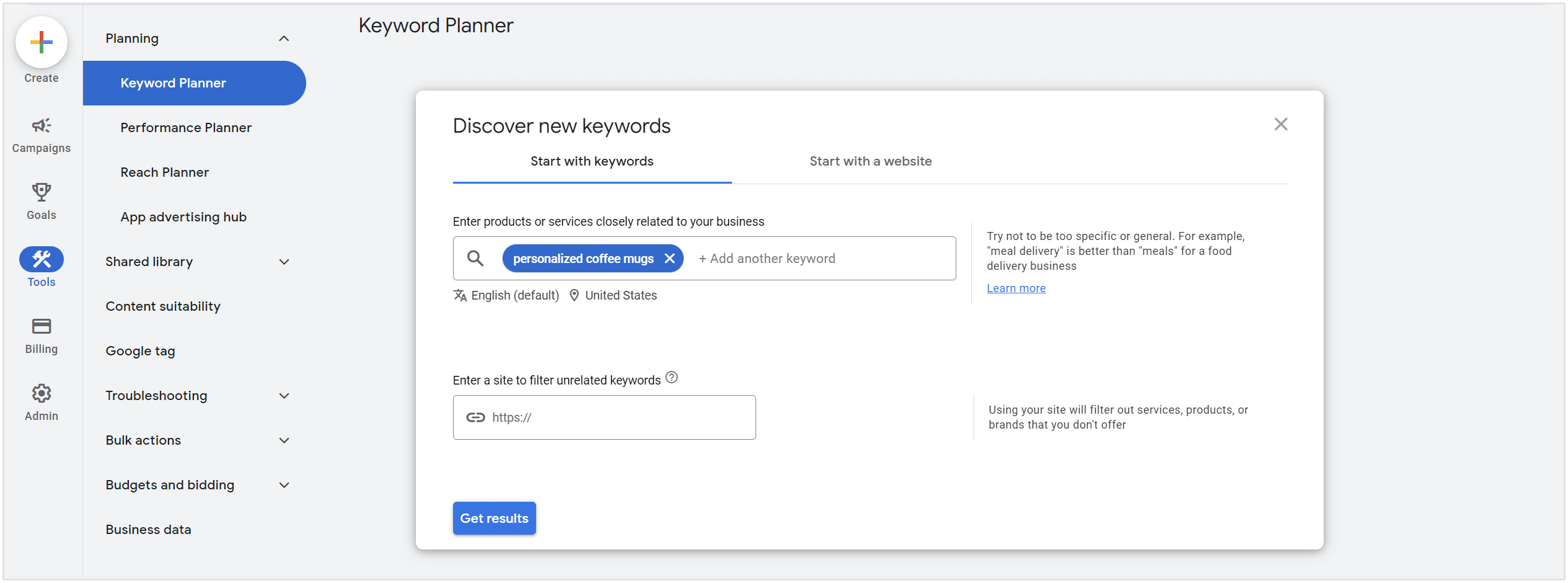
From here, you can refine your keyword ideas, get search volume, and bid cost. The tool offers keyword suggestions to broaden your search. Google Keyword Planner is beneficial for identifying keywords relevant to a specific niche, understanding their popularity, and making informed decisions about content creation and SEO optimization.
Both SEOptimer and Google Keyword Planner play crucial roles in uncovering niche keywords by offering detailed analyses and data-driven suggestions.
SEOptimer provides a holistic view of a website's SEO health, while Google Keyword Planner focuses on keyword data directly from the largest search engine. Integrating insights from these tools aids in a comprehensive approach to niche keyword discovery and optimization.
Conclusion
Mastering the art of finding niche keywords is important for a successful online presence in 2023. It is crucial to note that the process doesn't end with keyword identification. Regular reviews, adjustments based on evolving trends, and a keen understanding of user intent are essential for maintaining an effective niche keyword strategy.
By following the niche keyword-finding steps discussed in this article and by leveraging the right keyword research tools, website owners can not only find niche keywords but also stay ahead in the competitive digital space, driving targeted traffic and achieving sustainable online success.




